House Rules and Boundaries for Older Children and Teens Still Living at Home.
Do you have a child between the ages of 17 and 23 living with you? If you’re in constant conflict with an older child over everything from curfews (should they have one or shouldn’t they?) to getting a job to alcohol use, James Lehman offers advice on how to set reasonable limits, and how to coach your child to responsibility and independence.(Part 1 of a 3 part series.)
“I want you to think of your adult children as guests. Not as children. How would you let a guest act? When would you draw the line with a guest?”
Parents feel they have to take care of their kids, whether they are 9 or 19 years old. But as kids get older, they engage in more risky behavior, and “taking care of them” becomes more challenging. When they’re five, they’re climbing the monkey bars and you’re worried they’re going to break their arm. At eleven they’re starting to play football or baseball and you’re afraid they might get hurt with a piece of equipment. At 16, they’re starting to drive, they’re often getting money on their own, and they’re around people with drugs. On the surface, they may seem much more independent, but actually they are simply much more able to put their parents off and hide what’s really going on with them.
Related: Fighting with your adult child?
Kids between the ages of 17 and 23 have a lot of thinking errors. Just like you can have a spelling error, and misspell a word, you can have a thinking error in which you misread life’s problems and come out with the wrong solutions. When kids start hitting their late teens, you’ll hear them saying things that indicate they see themselves as victims. “It’s not my fault.” “I couldn’t help it.” “I only stayed out an hour late and you want to punish me?” They become much more adept at manipulating their parents by blaming them for being too rigid and strict. You’ll hear kids say, “I’m getting older now. You should trust me more.” But the fact is, they’re not getting that much older. Teenage mentality lasts from early adolescence until 22 or 23 years of age. Most of the research shows kids are still using the same parts of their brain at 22 that they were using at 15. Their brain is still developing in their early 20’s. So they are not that much more prepared for adult situations. But parents can get sucked into the thinking error that “You owe me. You owe me a place to live. You shouldn’t be too rigid.” When parents hear this enough, they start to feel guilty for the rules by which they have chosen to live. They begin to think they’re too strict just for trying to implement the rules they’ve always had since their kids were young.
How to Enforce the Rules of the House with Older Kids
I think parents should have two levels of rules with their older children who are still living at home. The first are the rules of your household that reflect your values, structure and moral authority. For example: People don’t abuse people around here. That doesn’t change at 18 or 19. That rule never changes. No drugs and alcohol, especially if you’re under age. That doesn’t change at 18 or 19. That’s the rule. No stealing. No lying. I would keep those rules very clear, because you don’t want to start having double standards with older kids, especially if you have other younger kids in the home.
The second level of rules is the one that enables parents to live with young adults. Certainly, young adults should get more responsibility and independence, but they have to earn it. If you’ve got a job, you get more independence. Should kids be able to stay out all night because they’re over 18? Absolutely not. If they’re living in your house, they have to let you know that they’re okay. That may mean calling in if they decide to sleep over at someone’s house. You have a right as a parent to expect this.
Related: Learn how to restore peace in your home today
The most important part of having rules with older children is the discussion that establishes those rules. When a child is about to turn 18, parents need to have a serious discussion about what the rules are going to be in order for everyone to live together. It should be a sit down, and you should write everything down that you agree to so that everything is clear. What can you do? What can’t you do? How will we support you in what you can do? What’s going to happen if you do what you’re not supposed to do? What is forbidden? These things should be clearly spelled out.
There’s a thin line between carrying your kids and being supportive of them. I think when someone is 18, if they finish high school, they should be supporting themselves financially. There should be no job too menial that they can’t take it until they find something better. Many kids don’t give a darn in high school, aren’t ready for a better job, and they resent the fact that they have to work at McDonald’s, 7-11 or some other starting out position. So they avoid doing it and think they’re better than that. This is a thinking error—a complete cognitive distortion that you shouldn’t accept as a parent. Parents need to say to older kids, “You made your choices in high school, and now if you want to better yourself, you’re going to have to go to school at night. If you want to better yourself, you’re going to have to start out in a junior college. If we can’t pay for college full time, you’re going to have to work and go to school part time.”
Everyone in the home should know what the rules are, and it’s important to lay it all out before the child turns 18. For example, the rule on drinking: “If you come home drunk, you will not be allowed to live in our house.” It can be you’re out of the house for a few days, a few weeks or forever. Just establish the rule, write it down and explain to the child that he is over 18, and this is how we have to live with this issue. If kids get belligerent and violent after 18 (or at any time, in my opinion) the police should be called.
Think of Your Adult Children as a Guests—Not as Children
If you feel compromised and taken advantage of by an older child, you need to realize this: the child is an adult now. He may not act it, but he is an adult. He’s living under your roof. He has to follow your laws. I want you to think of your adult children as guests. Not as children. That’s the most important thing to do. They’re done with high school; they are now guests in your home. How would you let a guest act? When would you draw the line with a guest? When would you feel you have to call the police with a guest?
When my son went to college, one of the biggest shocks he had was when we started to refer to his room as the guest room. I remember him saying, “But that’s my room.” We said, “No, that’s the guest room. You can stay there anytime you want, for as long as you want, as long as you live our way.” We said it with love and kindness, but we wanted him to see his role in a different way—as an adult.
Related: Having trouble getting through to your child?
For parents who are very anxious and have a lot of fears about their kids, this sounds like a difficult thing to say. I know that. But it’s really the best thing to say because you need to let these kids know that they have to start to make it on your own. In effect, you are saying, “You’ve had 18 years to learn how to make it on your own. Now’s the time to put it into practice. Whatever you’ve chosen not to learn or chosen not to do over those 18 years, you’re going to have to pay a price for that now.”
The bottom line is, sometimes kids have to start out small. There’s no shame in that, and you have to make that very clear. Even if it doesn’t match up with what you had hoped for your child. Many young adult children often have a false sense of entitlement. I met many kids in my practice who refused to go to school, and could only read and write at a seventh or eighth grade level at best. They told me they were going to be video game programmers, basketball players or rap singers. That’s how they were putting off their anxiety. If you’re talking to a kid who says, “I’m not making it in school, but I’m gonna be a rap singer. I wrote a few songs tonight,” that’s the way that that kid is postponing his anxiety. What he’s really saying is, “I’m so scared about the future, I have to make up this fantasy, and then I’m gonna cling to it.” Then, if you challenge that fantasy and say, “Wait a minute. There’s 20 million kids out there. What makes you think you can do it?” the kid says, “You don’t believe in me. You don’t have any faith in me.” He turns it right around on you until you’re the problem. His not studying is not the problem. You’re not believing in his fantasy becomes the problem.
When you have these different currents coming together in a home where parents are living with an older child, it can get very uncomfortable for everyone, if not hostile. The way to keep that hostility at bay is to have clarity beforehand. Get the expectations and the consequences down on paper-literally. Write them down and expect the child to live by them.
I have known many parents who couldn’t get their adult children out of bed. They think that they’re helping their adult children by giving them a roof over their head and not making them be responsible because they’re afraid for their kids. But what they’re afraid of can only be cured by that kid getting out of bed and doing something for himself. The parent is afraid the child is not going to amount to anything, that he’s not going to find a good job, that he’s not going to make it in school, that he’s going to get into trouble socially. But the thing that addresses those fears is to get him up at eight o’clock in the morning and get him out there looking for a job. Tell him to leave with his lunch, a cell phone and the internet want ads and don’t come back.
This may sound harsh. You’re pushing someone out into a world that they have to deal with. But you’re not pushing them out of a plane without a parachute. You’re pushing them out into the street without any money. The solution to that problem is getting a job. Many times parents use their own fears, anxieties and sense of guilt and remorse to justify not doing what they would do to a guest. Out of fear, they choose not to expect out of their child what they expect out of themselves and each other every day. (Part 1 of a 3 part series. Please also see “In Response to Parents of Older Children” and “Rules, Boundaries and Older Children: Is it Ever too Late to set up a Living Agreement?” .
There has been overwhelming response and interest in last month’s article on adult children. It was viewed over 10,000 times, was our second most emailed article ever, and has received the most reader comments of any article we’ve ever published. I must say I’m not surprised about this, since in my private practice I dealt with many parents who had terrible problems with children who were over 18 and still living at home. I believe this phenomenon has become a national problem. As the cost of living goes up, adult children who are not really prepared for the workforce have to make some sacrifices. Unfortunately today, kids don’t like making sacrifices and parents don’t want to enforce sacrifices.
“Be specific. ‘I want you to put in three applications a day. I want you making three follow up phone calls a day. And if you verbally abuse me, you’re out of the house for 24 hours.’ Remember: Nothing changes if nothing changes.”
A few notes before we begin. In this forum, I will not address individual cases or parents. The reason is that this forum is not counseling or therapy and should never be misconstrued as such. Rather, this is a place where I can offer you my personal opinion from 30 years of professional experience. What I will do here (and what I believe will be helpful for the most readers) is respond to the important themes that recurred within many of your responses. This will be a long article, because I see so many issues that call for discussion. If you posted a question after Part One of “Rules, Boundaries and Older Children” last month, or if you are struggling with an adult child, I hope you’ll take the time to read my response to readers here, and that it will help you and your family.
For Readers Whose Adult Children are Verbally Abusing them and Destroying Property
The theme that stood out most is the tremendous amount of verbal abuse that adult children are laying on their parents. Along with verbal abuse and cursing, I saw many of you writing about destruction of property and your adult child’s refusal to communicate and respond. This may sound harsh, but I think it’s amazing how people will make excuses for that type of behavior. It’s understandable that parents make excuses for younger kids who are abusive, hoping they’ll grow out of it. But I think once these kids are adolescents and adults, their behavior patterns are very set, and you need to know that adult children won’t take the time and trouble to learn new behavior patterns unless they’re forced to.
Adult children who use verbal abuse, aggression and destruction of property to deal with their parents are still using intimidation and force to solve complex problems. When you’re 18, 19, or 20 and all the things your parents told you are coming true—that you’re not prepared for the work force, that you should have studied harder, that you need to push yourself—it is easy to get resentful and blame and intimidate your parents. Because that’s easier than getting a job and working your way up. That’s easier than learning how to live with a roommate because you can’t afford your own apartment and a car at the same time. One thing we know about human beings is that they will, by their nature, take the easy way out. In this case, the easy way out is being oppressive to your parents so that you don’t feel any stress.
Related: Fighting with your adult child?
I think that parents also have to take some of the responsibility for this behavior. In the last twenty years, so many parents did everything they could to ensure that their kids didn’t feel discomfort because letting your kids feel discomfort was considered a bad thing. I know because I’ve dealt with so many of these parents. They fought with the schools. They protected their kids from consequences. In many cases they let things slide that they knew were wrong. They made excuses for the kids. And what they ended up with is a kid who is not prepared to deal with the injustice, stress and discomfort of life. Making a transition from adolescence to adulthood is very stressful, uncomfortable and difficult. It involves solving some very complex problems about how you’re going to live, where you’re going to live, who you’re going to live with, and what you’re going to do with your life. Although many kids solve those problems in a non-destructive way, there is a sub-group of kids who still make it their parent’s problem and society’s problem and everybody else’s problem. If you’re dealing with one of these adult children, it will take all the strength and commitment you can muster to force this child to become independent.
I noticed in one of the responses that the parents thought I was telling them to throw their kids out. I am not saying that at all. But I am saying that your kids won’t change until you do something drastic. Making them leave the home is one of those things that may have to be done.
As a parent, I understand the difficulty, fear and anxiety of sending your child out into the world. But also as a parent, I know that the best personality characteristic that you can give a child is independence. The best knowledge you can give them is how to solve life’s problems. If they’re still at home cursing at you, abusing you, not getting a job, sleeping until noon and playing video games all day, they are not independent and they are not solving life’s problems. There’s no gray area there. Parents have to be very strong in demanding that their kids start to face their situation in life before it gets worse.
Let’s be clear: from an adult child’s point of view, this is a great life. Somebody’s paying the rent, there’s food in the refrigerator, they get to party with their friends, they don’t have to be anywhere at any time. They get to avoid all stress, and if their parents give them a hard time, they bully them. Nice life. If parents are willing to live that way, you don’t have to read any more of my articles. You’ve found the solution that works for you. But if you’re determined not to live that way, I’m here to tell you that you don’t have a lot of choices. You need to make a drastic change.
Here is my recommendation on what that drastic change looks like. Number one, you set some simple structure and some rules for your child. Rules like: You need to get up at a certain time. You need to go out and look for jobs. You can’t sit around and play video games all day. Be specific. “I want you to put in three applications a day. I want you making three follow-up phone calls a day. And if you verbally abuse me, you’re out of the house for 24 hours.” You don’t care where they go. Let them go to their aunt’s house or their friend’s house. Let them figure out where they’ll stay. They’re out of the house for 24 hours.
I want to make a distinction here. What I just suggested is a consequence. It’s not preparation for life. If they’re verbally abusive a second time or destroy property, they’re out of the house for three days or a week. You don’t care where they go. They’ll tell you they’re partying at their friend’s house. Let them party. All you know is that they can’t stay in your house. This is a consequence for disrespecting your home and your values. This is not a preparation for independence. (See the discussion below and in part two of my article on “Rules, Boundaries and Older Children”, which will be featured in Empowering Parents in a few weeks, for suggestions on how to prepare kids for independence.) This is used strictly to get some control in your house. If you have adult children who are verbally abusing you and breaking things, your house is out of control. I don’t know how you can live there.
Use the police. Put his bags out on the sidewalk, call the cops and say, “He doesn’t live here anymore.” Don’t play games or you’re not going to own your own home.
I’ve worked with plenty of parents who had to do this. They were all afraid to do it. I understood that. They got into their situation because they were mortally afraid their kid would face discomfort. But when all other efforts failed, they had to call the cops to get the kid to change.
Let me be straight with you and offer you some empowerment. You’ve raised this kid. You’ve invested everything in him and now you have to tiptoe around the house? That is unacceptable. To the parents who are willing to live this way, I tip my hat to you. But I personally could not live with that, and I’m not willing to.
Kids learn best when parents use parenting roles such as teaching, problem-solving, limit setting. On the other hand, parents who are martyrs and excuse-makers wind up with children who won’t and don’t know how to respond to the demands of young adult life. And nothing changes if nothing changes. For your sake and the sake of your child, demand change now.
For Readers who are Struggling with Getting their Adult Child to be Independent and Move Out
Once you’ve established that they can’t abuse and intimidate you and train you to give into them, then you have to help them prepare themselves for adulthood, even though they’re young adults. First, you have to force them to find work, no matter how menial they think that work is. The way that you force them to do that is you establish a time when they get up in the morning. Then they read the want ads, they go out, they put in job applications. On weeknights, they can’t stay out past a certain time. They have to live as if they have a job. If they’re not willing to do that, you fall back on the consequence structure that I outlined for you earlier. Number two, once they get that job, they have to pay room and board—not to add to the money of the household, but so you can put it away and have enough money for them to talk about moving out. They have to sit down once they have a job and work with you on doing a budget. The kid should have so much money for recreation, so much money for room and board, so much money for his savings, even if it’s only ten dollars a week. If he can’t open up a savings account yet, he gives the money to the parents to hold. He doesn’t put it in his drawer. And he has to live on that budget. You should not rescue him. You’re already providing a safe place to live. These mundane, basic skills make the difference between the kids who learn how to survive out there and the kids who can’t seem to make it.
Related: Having trouble getting through to your child?
Again, if this seems harsh to you, think about it this way. If this kid gets a job and spends all his money and can live at home, why would he ever move out? If you have a job at $12 an hour and you’re living at home for free, that’s like having a job for $25 an hour. Kids are going to want to live that way if you don’t make them uncomfortable. If you don’t demand change.
I want parents to think of the future. Not what are you doing for your child today. But what are you doing for your child tomorrow? If you’re supporting him today and making excuses for him today and buying his excuses, what you’re doing to your child of tomorrow is continuing his crippled attitude toward life. I can’t do it because…then fill in the blank. Because they don’t pay enough. Because they don’t like me. Because I don’t like doing that kind of work. Because I won’t work in fast food. Just fill in the blank. By not demanding change, what you’re doing to your child of tomorrow is not forcing him to prepare to learn how to live independently. He has to solve the problem of learning how to support himself. Make no mistake about it: If you tell a kid he has to work and he doesn’t, and you tolerate that and just continue to fight about it, you’re saying to him, in a non- verbal way, that he’s a cripple and you know it. You’re saying to him he’s not as good as the other kids, and you know it. You’re saying you’re willing to put up with this because you know that there’s something wrong with him. That’s the message he’s getting. So, he thinks there’s something wrong with him because he doesn’t know how to deal with discomfort and stress.
So, to push him, make demands of him, hold him accountable and give him consequences, are all really ways of saying, “You can do it and I expect you to. In fact, I demand you to.” It’s never too late to deal with children in a teaching, limit-setting and coaching way. If you don’t know how to do that specifically, we offer a program that can help you here on the Empowering Parents web site. Parents can start anytime, as long as they’re willing to deal with the discomfort of demanding that their kids change and holding them responsible. It may feel like the hardest thing you’ll ever have to do. But it could save your kid’s life.
As a parent, I’ve had my ups and downs with my son. He’s self-supporting now, but that situation has been on and off for many years. He’s 31 years old, and he’s a real nice guy. I love him. But if he lost his job and he moved back home, he’d have to pay rent, come up with a budget and get a job. And I’d help him in any way I could. But if he verbally abused me or his mother, he’d have to go. It’s just that simple. I’ve worked all my life. I’m not going to take abuse now. So when I urge you to push your kid, understand that it’s exactly the way I pushed mine. If you don’t want to do it, that’s your choice. But, once I offer you a solution, if you come back and say you can’t do it, I don’t have another solution. Forget all the razzle-dazzle and the hype talk of the 80’s and 90’s. If you don’t work hard, you fall behind. If you don’t learn how to solve problems, you get stuck. If you don’t know how to deal with discomfort and stress, you’re going to have a hard time making it until you learn how to deal with these things. That’s the reality for adult children.
What to Do If Your Adult Child Is Stealing from You
Many parents wrote in and told of their struggles with an adult child who steals from them, be it credit card theft, stealing money from the house or forging checks. Stealing is absolutely intolerable. Whether it’s stealing from parents or siblings, it’s a crime. Know this: the laws don’t change inside the walls of your house. If I steal $20 from you on the street, that’s stealing. And if somebody steals $20 from you in your home, that’s stealing. And if it’s an adult, it’s a crime. It’s called larceny.
If your adult child steals from you, first of all, you should tell him, “Go upstairs, pack a bag and come back downstairs in five minutes.” When he comes back downstairs with a bag, say, “Here are your choices. You’re out of here for a week, and if you don’t stop stealing, you’re not coming back.” And I would call the police. I would pack a bag, put it on the curb, call the police and say, “He doesn’t live here anymore. He stole from us.” I’ve worked with many parents whose kids broke back into the house and they pressed charges for burglary. You have to be really clear with the police and tell them that he doesn’t live there anymore and you have to put his stuff out on the sidewalk. It’s going to cause a scene. You’re going to be embarrassed. But you can live in a little prison where you’re being abused and where there’s a predator stealing from you, or you can break out of that prison. It will take some noise, but you can break out of that and not be a victim.
Parents need support and help, and I understand what they’re going through because I came from this kind of family and I’ve worked with these families for three decades. But you also need to understand, you didn’t work like a dog all your life just to be in prison now. Ask yourself: is this what we worked for all our lives? We dealt with discomfort. We dealt with stress. We dealt with unhappiness. We had to come up with humility. Is this what we worked for now? That our adult son is going to live with us, steal from us, abuse us and make our lives miserable? If the answer is yes, I say go to it. I’m not here to contradict that. But if your answer is no, then you need to make some changes, and you need to make them now. It begins with getting him out of bed tomorrow morning and calling in the authorities if he gets abusive.
Parents are supposed to have a certain amount of power in our society just by virtue of being a parent. Sadly, in many cases, that is not the story. If you’re living with an abusive adult child who is committing crimes against you and your home, he obviously does not respect your power as a parent. So, you need civil power. You need the civil authorities. Don’t hesitate to use them. Everybody else is going to use them. Why shouldn’t you? Let me tell you one more thing that’s going to sound cold. If your kid does ten days in jail, good. Because he’s not going to curse at people and intimidate them in there. If success is having a job and being productive, then failure is sitting in a county jail. Ten days in jail can teach your child that it’s time for him to reach for something in between.
Let him share some of your pain and discomfort and see how he likes it. Because this is important: if you’re willing to do something about it, he will become willing to do something about it. He will not become willing to do something about it as long as you remain unwilling.
Fear of Responsibility: Adult Children Who Hide out Playing Video Games and Sleeping
In adolescence, kids want to be independent and free. They can’t wait to get out of their parent’s house and tell them what a pain in the neck they are. But the fact is that many kids, before they graduate from high school, do some acting out and show some anxiety or depression because they’re terrified of what’s on the other side of that. They’ve been safe in grade school, middle school, high school and in their families all their lives. Many kids are able to deal with these problems and they prepare to grow into the next stage of life. But there are those kids who, for whatever reason, are not prepared to grow into the next stage, and it shows in their behavior. The kids who are not prepared to take responsibility in their lives become angry, resentful and do irresponsible things. They’re terrified of change, and they’ll do anything to avoid it, including partying all night, sleeping until 2 pm and doing nothing but playing video games when they are awake. But these are the kids who have to be pushed the most.
I’ve dealt with many adult children in my office who had this fear, and I empathize with them. I do tell them that it’s a part of the process and that they have to face it. How do you face a fear of making it in the adult world? You get a job. And you do that job. You take a job for three months and you say, “I won’t quit. I’ll deal with all the craziness and I won’t quit. And at the end of three months, I’ll have some experience and then I’ll decide what I want to do next. And what I want to do next may be stay at McDonald’s or go someplace else. I won’t leave my job until I have a new one.” Eight months out of high school that kid is going to have some skills, experience and independence. He’s at work dealing with adult stress and mommy’s not holding his hand. That will prepare him for the next stage of growth. Maybe a more responsible job or going back to school. A lot of the work that I did in my office was coaching and teaching these kids on what they had to do. I literally had kids fill out three job applications a day then call me in my office to say that they had done it. And they would, because I gave them the clear message that accountability matters. While I empathized with them, I didn’t accept their excuses as to “why” they were stuck in life. Because “why” didn’t matter. Everyone has to be independent, no matter how afraid they are and what challenges they have in their lives.
I worked with mildly mentally retarded adults in my practice who lived in group homes with staff. They had to learn how to have a job if they wanted money because the state paid for their group home but did not give them any spending money. They had to learn how to have a supervised job if they wanted money. They had to learn how to talk nicely to people if they wanted to go out and do things and have privileges. They had to clean their rooms and make their beds every single day. They took turns cooking at night with staff support. They did these things because they had to acquire independence. So don’t tell me kids can’t do it. Not only can a kid do it, he has to do it.
Yes, these kids are afraid. They have a false sense of entitlement that they should have all of life’s niceties without having to work for them. They don’t know how to be independent. They haven’t learned how to solve social problems. But if they don’t start learning to solve them today, it’s not going to happen. So parents have to draw the line because the adult child will not draw the line. They’re having too much fun and they’re too afraid. If the parents can’t draw the line and the kid pushes it, then the police have to draw the line. It’s that simple.
Adult Children with Children: When You Have to Parent Both
I’ve worked with quite a few families who were living with 17, 18, 19 and 20 year olds who had their own children. The adult child can’t make it or the marriage falls apart and they move back in with their parents. This is a really tough situation, and I don’t want to minimize the emotional pressure everyone is under. These are innocent grandchildren. The role of parents and grandparents is very different. A parent sets limits, goals, and gets the kid to meet objectives and be productive. A grandparent is benign and indulging. They also set limits, but not in a full-time, around-the-clock manner. It’s a very difficult situation and I just want to make some observations that may be helpful.
Grandparents should do what they can to help out with child care. But only with the goal that the adult child pays room and board and that the money is put away until the adult child can move out. The adult child has to have a job and needs to look into daycare or public daycare. Parents everywhere go back to work when their kids are six months old. So you have to demand that your adult child do something to dig themselves out of the hole they’re in, and not just jump into the hole with them. Too many grandparents jump into the hole that their adult child has dug and stay there. And that doesn’t make any sense. You have to help or get out of the hole. The first way to get out of the hole is to stop digging.
Related: Having trouble getting on the same page with your spouse?
So, your adult daughter who has a toddler can’t run around all night. She has to live a work schedule. If she wants to go out at night, she has to get her own babysitter. Grandparents should not be babysitters for adult children living in their home. Let them pay for that. Have them live on a budget and let them pay for that. The adult child is not going to like that, but that’s where you draw the line. We’re not here to parent. We’ll help out while you work if we can. But you’re going to have to pay for that. If the adult child becomes explosive, call the police.
And there’s one more very hard thing that grandparents have to do. If the adult child is not taking responsibility for their own child and putting that child at risk, you have to call the state. Call the Department of Children and Family Services or whatever it’s called in your state. If the state comes in and does an investigation and finds the mother is not fit, they’ll first turn to the grandparents to see if they’ll take custody, or a family member. They will offer the mother supportive training and help. They don’t remove kids that easily. They don’t want your adult child’s child. Grandparents are terrified that the state will take their grandchildren. They don’t want your grandchild unless the mother’s strung out on drugs or committing crimes. They want the child with the mother. Because that’s where the child should be by nature and that’s the least expensive way to deal with the situation. The state does not want to take on the cost of raising your child’s child. Don’t fear that.
I’ve worked in states where state agencies have taken kids and they’ve needed to take those kids because they were in danger. But as soon as they take the child, they come up with a plan on how the parent can get the child back, whether it’s substance abuse treatment, career counseling or parent training. Just as you need to turn to a greater authority if your adult child is abusing you, you need to turn to a greater authority if your adult child is not caring for his or her own child. Understand this: you’re doing it for the welfare of your grandchild.
You may read my suggestions here and call it “tough love.” But that’s not what this is. There’s nothing tough about love. This is responsible love. It’s saying to your adult child, “I love you, and I’m going to be responsible. You can love me, but you have to be responsible.” Responsible love means demanding that your adult child learn how to solve his problems. Responsible love means demanding change. Now.
This is the third and final installment in a three part series of articles by James Lehman, MSW.
For those parents who haven’t set up a structured agreement when their child turns 18, it’s never too late to set one up. Even if your child is 23, living under your roof and staying out until the wee hours, it’s never too late to sit down with that kid and say, “We’re going to have to have a talk about our rules here and what parts fit you and what parts don’t fit you.” If a kid is 23 years old and he’s not working, he can’t be up until two o’clock in the morning with friends in the house, keeping other people awake. You may feel obligated to provide that child with a roof over his head. But you have the right to let him know that “This is not your home for that anymore. We’re going to bed, we’re tired, we worked all day. If you’re going to live here, you have to live within our rules.” If he tries to put you down for it, you need to put your foot down. If that means taking the car keys, then that’s what it means.
“Young adult children who don’t feel competent will resist taking responsibility for anything, and they’ll keep doing it as long as you let them.”
When parents lay out these rules with kids after the age of 18, they should expect the kid to be resentful, resistant and to blame them. The older child will try to make them feel like the parents are jerks because he still has a lot of thinking errors, is hiding from responsibility and postponing the anxiety of accepting it. Parents should simply disregard the child’s thinking errors, and not give in and tell the child that everything is okay.
Likewise, parents shouldn’t get into making a lot of excuses for themselves. They should say, “This is our expectation. We’re sorry we didn’t do it before now, but we’re here today and this is what we’re going to have to do. And we can’t go any further until this agreement gets made.” The expectations should include what time the kid gets up in the morning if he’s not working. Older kids who are avoiding responsibility will stay up all night and sleep until noon. When you ask them why they sleep until noon, they’ll say, “Well, I’m not working.” As the parent, you have to make it clear: “That’s why you’re not working. Because you sleep until noon. Get up at seven o’clock like everybody else and find a job.” It’s never too late to be this direct with your child.
Related: Having trouble getting through to your child?
Remember: do not take the kid’s accusations and blaming as fact. Expect to hear plenty of accusations and excuses. You’re going to be compared to his friend’s parents. You’re going to be told you’re hateful and uncaring. But don’t forget, this kid is fighting taking responsibility, and he will fight it fiercely. Young adult children who don’t feel competent will resist taking responsibility for anything, and they’ll keep doing it as long as you let them. Parents should be prepared to deal with this, not through yelling and screaming. Not through making excuses for themselves. Just by calmly saying, “This is the time we’re meeting. We need to talk.” If you have to, take the kid’s car keys until he is ready to talk.
The agreement you develop with the child should allow for adult privileges. Specifically, if the kid is working and being responsible, then your agreement with him should be very flexible. On his day off, he can sleep all day for all you care. But he can’t stay out all night without calling you because you’re going to worry, and it’s his responsibility to let you know he’s safe. If he doesn’t want to do that, then he should move into a more independent living situation. You don’t get complete freedom and the support of living at home at the same time.
How to Handle Rent, Household Chores and Rules about Alcohol
Paying rent is a very good habit for an older child to get into. I think there are two ways to look at the issue of when and if your child should pay rent in order to continue living at home. If the family needs the money and the kid is working, he needs to contribute. It’s just that simple.
If you don’t need the money, charge him room-and-board anyway, and then put the money aside and save it up until you’ve saved enough for a security deposit on an apartment and the first month’s rent. Then when he’s ready to move out, you’ve already got his money. Hold onto that money. That way, he pays for himself, and he gets into the habit of paying rent and being responsible while money is being accumulated, so that both he and the family are prepared for his next step.
When you come up with the agreement on living arrangements, I think it has to be really clear that the child is here to contribute, not just take. So, parents need to be clear about specific chores the older child will be responsible for. Parents can offer their ideas, and the young adult child can come up with his own ideas. Maybe he offers to take the younger kids to school in the morning, and you ask him to be responsible for bringing in wood and taking out the trash and recyclables each week. Write it down and be clear about consequences if he doesn’t follow through, because everyone who lives in the house has to help out.
Related: Learn how to restore peace in your home today.
The understanding should be very clear about alcohol and drugs, and it’s simple because the law makes it simple. In most states, it’s illegal to drink under the age of 21. You don’t have to say, “I know it’s illegal, but…” and wink your eye. The best thing that you can do for your young adult child is follow the letter of the law and say “No drinking under 21. If we catch you drinking and driving, we’re taking the car keys. If you fight us, we’re calling the cops.” He’s going to say you’re rigid and unreasonable. But it’s better that your kid lose his license for 90 days than die or kill somebody else.
When Is It Time to Ask Your Child to Leave Home?
The decision on when to ask an older child to leave the home has more to do with a family’s morals and values. First of all, if he violates a cardinal rule, he should leave. If he’s insulting you, abusive with a family member or breaking things, he should leave. He should go stay with a friend. The kids who are going to be most likely to be asked to leave are the kids who are going to tell you they have nowhere to go. Because the abusive behavior won’t be an unexpected anomaly in their life. It’s not like their whole life is great, but they hit their brother. The abusive older child will most likely show a pattern of this behavior and demonstrate a host of thinking errors. So when you ask him to leave, he won’t know where he can go, because he is unable to solve that problem.
Secondly, if things are going well with the living arrangement, the child should be told to think about leaving once he has the means. Once the first and last month’s rent and a deposit are set aside and he has a car and he’s driving, he should be told to start looking for a place with a roommate. I’ve worked with many college graduates at agencies who were not able to own a car or have their own apartment at the same time. They had to make a choice because they didn’t make that much money. They had to accept either having their own car and living with a roommate and learning how to live with other people, or not having a car and living close to their job and just having their own apartment. But they can’t have it both ways, and parents should not take responsibility for that.
Independence is a decision you can make as a family. If a young adult child is doing well, living at home and meeting the family’s expectations, then there’s no problem. But someday he will want to be independent. The way you get there is to sit down and have the child set some goals. Where do you plan to live? When do you plan to move out? How much does the child need to pay for rent or room and board while living at home? Measure progress toward the goal by the objectives. If the child has a goal to move out and he’s not meeting any of the objectives, it’s a joke.The greatest gift you can give your child is knowing how to be independent and take responsibility. If a child fears independence and responsibility, you can solve that problem by having a written agreement that shows the child how to live by your rules, and have ongoing discussions about the goal of independence and how to meet it.
Read more: http://www.empoweringparents.com/Rules-Boundaries-and-Older-Children-Late-To-Set-Up-Living-Agreement.php#ixzz2ZMNfIfzJ
Read more: http://www.empoweringparents.com/In-Response-to-Questions-about-Older-Children-Living-at-Home-by-James-Lehman.php#ixzz2ZMNGp7ak
Read more: http://www.empoweringparents.com/Rules-Boundaries-and-Older-Children.php#ixzz2ZMMkhZx1
 1Be clear on what went wrong. Before you attempt to reconnect with your child, it may be helpful to find out why your adult child is upset or angry with you. You may be able to get the information directly from your child, or you may need to find out from someone else who knows the situation. In order to mend fences, find out the problem first.[1]
1Be clear on what went wrong. Before you attempt to reconnect with your child, it may be helpful to find out why your adult child is upset or angry with you. You may be able to get the information directly from your child, or you may need to find out from someone else who knows the situation. In order to mend fences, find out the problem first.[1] 2Do some self-reflection. Spend some time thinking about the reasons behind the estrangement. Was it triggered by something from the past? Has there recently been a huge change of life that caused the rift (such as a death in the family, or a birth of a child)? Perhaps you even refused to communicate with your child for a period of time, and now find your child unwilling to communicate with you.
2Do some self-reflection. Spend some time thinking about the reasons behind the estrangement. Was it triggered by something from the past? Has there recently been a huge change of life that caused the rift (such as a death in the family, or a birth of a child)? Perhaps you even refused to communicate with your child for a period of time, and now find your child unwilling to communicate with you. 3Put the ball in your own court. Whether you have done anything wrong or not, parents are generally the ones who have to take the first steps toward reconciling with their estranged children. Look past the unfairness of the issue and leave your ego behind. If you want to reconnect with your child, know that you will need to be the one to reach out…and continue reaching out.[2]
3Put the ball in your own court. Whether you have done anything wrong or not, parents are generally the ones who have to take the first steps toward reconciling with their estranged children. Look past the unfairness of the issue and leave your ego behind. If you want to reconnect with your child, know that you will need to be the one to reach out…and continue reaching out.[2] 4Contact your child. While you may want to meet with them in person right away, it may feel less intrusive to your son or daughter if you reach out via phone call, email, or letter. Honor their need for distance and give them the opportunity to respond at the time of their choosing. Be patient and allow a few days for your child’s response.
4Contact your child. While you may want to meet with them in person right away, it may feel less intrusive to your son or daughter if you reach out via phone call, email, or letter. Honor their need for distance and give them the opportunity to respond at the time of their choosing. Be patient and allow a few days for your child’s response. 5Write a letter. Your child may be unwilling to meet with you. If that’s the case, you could decide to write them a letter. Apologize for the hurt you’ve caused, and acknowledge that you understand why they feel the way they do.
5Write a letter. Your child may be unwilling to meet with you. If that’s the case, you could decide to write them a letter. Apologize for the hurt you’ve caused, and acknowledge that you understand why they feel the way they do. 6Accept limits they set. Your adult child may be open to communicating with you, but not be ready for a face-to-face meeting (and may never be). They may only want to email you or talk on the phone. Avoid guilt-tripping your child while keeping the door open for future encounters down the road.
6Accept limits they set. Your adult child may be open to communicating with you, but not be ready for a face-to-face meeting (and may never be). They may only want to email you or talk on the phone. Avoid guilt-tripping your child while keeping the door open for future encounters down the road. 1Arrange for a meeting. If your adult child is willing to talk with you in person, get together in a public place for a meal. Sharing a meal in public is a good idea, as you will be more likely to hold your emotions in check, and sharing a meal with someone is an act of building community.[4]
1Arrange for a meeting. If your adult child is willing to talk with you in person, get together in a public place for a meal. Sharing a meal in public is a good idea, as you will be more likely to hold your emotions in check, and sharing a meal with someone is an act of building community.[4] 2Let your adult child lead the conversation. Listen to your child’s concerns without arguing against them or becoming defensive. They may also come to your meeting expecting an apology right away. If you sense that is the case, do so.[5]
2Let your adult child lead the conversation. Listen to your child’s concerns without arguing against them or becoming defensive. They may also come to your meeting expecting an apology right away. If you sense that is the case, do so.[5] 3Listen to your child without judgment. Remember that their point of view is valid, even if you disagree with it. Healing can occur when a person feels listened to and understood, and you remain open to their perspective.[6]
3Listen to your child without judgment. Remember that their point of view is valid, even if you disagree with it. Healing can occur when a person feels listened to and understood, and you remain open to their perspective.[6] 4Shoulder your share of the blame. Understand that you can’t get far in reconciliation without acknowledging how you may have contributed to problem. Adult children want their parents to take responsibility for their actions. Be willing to do so, whether or not you believe you are/were wrong.[7]
4Shoulder your share of the blame. Understand that you can’t get far in reconciliation without acknowledging how you may have contributed to problem. Adult children want their parents to take responsibility for their actions. Be willing to do so, whether or not you believe you are/were wrong.[7] 5Avoid discussing your feelings about the estrangement. While it may seem unfair, now is not the time to bring up your sadness and pain around not being able to communicate with your child. Recognize that they needed some space to deal with their emotions and sort some things out. Bringing up your feelings of sadness, anger, and resentment may make your adult child feel like they are being guilt-tripped, and they may feel less likely to re-enter into a relationship.
5Avoid discussing your feelings about the estrangement. While it may seem unfair, now is not the time to bring up your sadness and pain around not being able to communicate with your child. Recognize that they needed some space to deal with their emotions and sort some things out. Bringing up your feelings of sadness, anger, and resentment may make your adult child feel like they are being guilt-tripped, and they may feel less likely to re-enter into a relationship. 6Apologize. A good apology must clearly name what you did wrong (so that the listener knows you understand), express remorse, and offer to make amends in some way. Offer your son or daughter a heartfelt apology that acknowledges the pain you have caused them. Remember, apologize even if you believe your actions to be correct. The point is now about your child’s pain, not whether someone is right or wrong.[10]
6Apologize. A good apology must clearly name what you did wrong (so that the listener knows you understand), express remorse, and offer to make amends in some way. Offer your son or daughter a heartfelt apology that acknowledges the pain you have caused them. Remember, apologize even if you believe your actions to be correct. The point is now about your child’s pain, not whether someone is right or wrong.[10] 7Consider family therapy. If your adult child is willing, you may wish to seek out family therapy together in order to discuss your feelings in the presence of a trained professional. A marriage and family therapist will guide family members to identify dysfunctional family behaviors and develop their own solutions to a problem. Family therapy also works to acknowledge and enhance the connections family members have with each other.[12]
7Consider family therapy. If your adult child is willing, you may wish to seek out family therapy together in order to discuss your feelings in the presence of a trained professional. A marriage and family therapist will guide family members to identify dysfunctional family behaviors and develop their own solutions to a problem. Family therapy also works to acknowledge and enhance the connections family members have with each other.[12] 1Start slowly. Resist the urge to jump back into a relationship. In most cases, a broken relationship won’t mend overnight. Depending on whether the root cause of the estrangement is mild or severe, it could take weeks, months, or even years to return to “normal.” You may also find a new normal.[13]
1Start slowly. Resist the urge to jump back into a relationship. In most cases, a broken relationship won’t mend overnight. Depending on whether the root cause of the estrangement is mild or severe, it could take weeks, months, or even years to return to “normal.” You may also find a new normal.[13] 2Recognize that your child is an adult. Your child is now an adult, capable of making their own decisions. You may not agree with some of their decisions, but you need to let your adult child be independent and live their own life. Meddling in your adult child’s life may have caused your child to put some distance between the two of you.[14]
2Recognize that your child is an adult. Your child is now an adult, capable of making their own decisions. You may not agree with some of their decisions, but you need to let your adult child be independent and live their own life. Meddling in your adult child’s life may have caused your child to put some distance between the two of you.[14] 3Avoid giving parenting advice. Parents can be easily upset by outside parenting advice, however well-intentioned it was meant to be. Do not offer your opinion unless asked. You’ve already raised your children, now give the next generation a chance to raise theirs.[15]
3Avoid giving parenting advice. Parents can be easily upset by outside parenting advice, however well-intentioned it was meant to be. Do not offer your opinion unless asked. You’ve already raised your children, now give the next generation a chance to raise theirs.[15] 4Seek counseling for yourself. Dealing with an estranged child can be a very stressful, painful event in your life. It may be worth seeking out a qualified mental health professional to help you deal with your emotions and develop effective communication and coping strategies.[16]
4Seek counseling for yourself. Dealing with an estranged child can be a very stressful, painful event in your life. It may be worth seeking out a qualified mental health professional to help you deal with your emotions and develop effective communication and coping strategies.[16] 5Be persistent, but not overbearing. If your son or daughter is refusing to respond to your attempts to communicate, keep trying. Send cards, write emails, or leave voicemails, letting them know you are thinking about them and want to talk.[17]
5Be persistent, but not overbearing. If your son or daughter is refusing to respond to your attempts to communicate, keep trying. Send cards, write emails, or leave voicemails, letting them know you are thinking about them and want to talk.[17] 6Let go if necessary. Your adult child may see even your less intrusive attempts at getting in touch as overstepping boundaries and being too much. They may still not want to have anything to do with you, even if you have apologized and acknowledged your actions. In that case, it may be best to come to a place of acceptance for the sake of your own mental health, and step back from pursuing a relationship.
6Let go if necessary. Your adult child may see even your less intrusive attempts at getting in touch as overstepping boundaries and being too much. They may still not want to have anything to do with you, even if you have apologized and acknowledged your actions. In that case, it may be best to come to a place of acceptance for the sake of your own mental health, and step back from pursuing a relationship. 1Accept that your child sees life from a different perspective. You all may have lived in the same house and spent most of your days together, but one person’s perception of a situation could still be completely different than another’s. Acknowledge that your adult child’s recollection or perspective is just as valid as yours.
1Accept that your child sees life from a different perspective. You all may have lived in the same house and spent most of your days together, but one person’s perception of a situation could still be completely different than another’s. Acknowledge that your adult child’s recollection or perspective is just as valid as yours. 2Accept each other’s differences. You may be estranged because one, the other, or both of you do not approve of the other’s life choices. While you may not be able to do much about your child’s attitude toward you, you can show your child that you accept them for who they are, no matter what.[20]
2Accept each other’s differences. You may be estranged because one, the other, or both of you do not approve of the other’s life choices. While you may not be able to do much about your child’s attitude toward you, you can show your child that you accept them for who they are, no matter what.[20] 3Respect their right to disagree with you. You don’t have to change your opinions or beliefs, just refrain from showing disrespect for theirs. You can disagree with someone and still respect and love them. Not everyone’s opinion needs to be the same.[21]
3Respect their right to disagree with you. You don’t have to change your opinions or beliefs, just refrain from showing disrespect for theirs. You can disagree with someone and still respect and love them. Not everyone’s opinion needs to be the same.[21]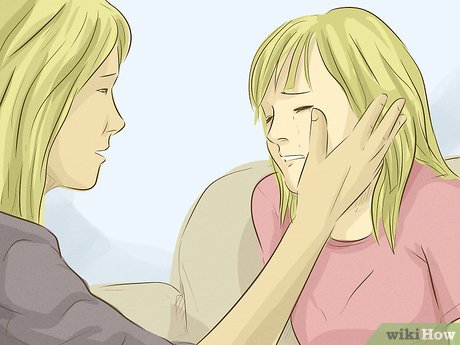




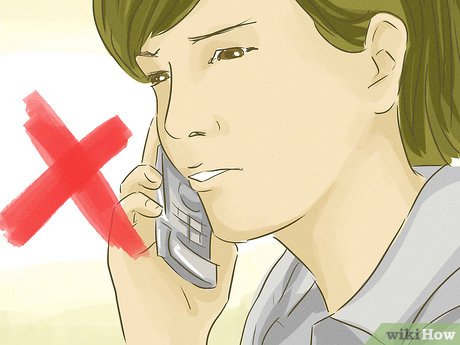





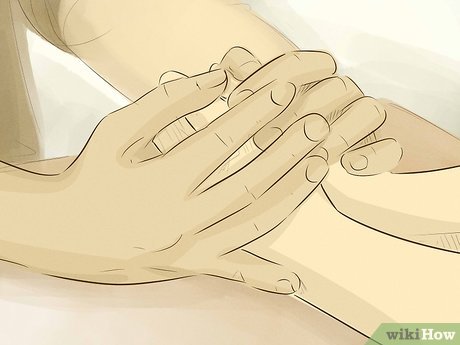









 Reaching Out to an Estranged Child
Reaching Out to an Estranged Child Reacting if an Estranged Child Reaches Out
Reacting if an Estranged Child Reaches Out Establishing Boundaries with an Estranged Child
Establishing Boundaries with an Estranged Child





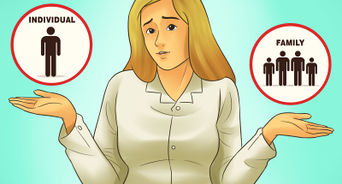
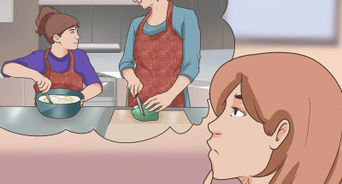













-max_bytes(150000)-strip_icc()/elizabeth-mcgrory-1000-0dcae19a0c394bc18ebb137312c17247-resize-357-357-ssl-1.jpg?ssl=1)
-max_bytes(150000)-strip_icc()-format(webp)/questions-590b68a03df78c9283acf4bc-w-840-ssl-1.jpg?ssl=1)
-max_bytes(150000)-strip_icc()-format(webp)/holdinghands-590b6bd83df78c9283ad0648-w-840-ssl-1.jpg?ssl=1)
-max_bytes(150000)-strip_icc()-format(webp)/memory-590b6d225f9b586470a9b886-w-840-ssl-1.jpg?ssl=1)
-max_bytes(150000)-strip_icc()-format(webp)/teeth-590b6e1f5f9b586470a9c277-w-840-ssl-1.jpg?ssl=1)
-max_bytes(150000)-strip_icc()-format(webp)/smile-590b6f8e3df78c9283ad2f76-w-840-ssl-1.jpg?ssl=1)
-max_bytes(150000)-strip_icc()-format(webp)/bucket-590b70f15f9b586470a9d3d8-w-840-ssl-1.jpg?ssl=1)
 By listening and then repeating back in your own words the essence and feeling of what you have just heard, from the speaker’s point of view, you allow the speaker to feel the satisfaction of being understood, (a major human need). Listening responsively is always worthwhile as a way of letting people know that you care about them. Our conversation partners do not automatically know how well we have understood them, and they may not be very good at asking for confirmation. When a conversation is tense or difficult it is even more important to listen first and
By listening and then repeating back in your own words the essence and feeling of what you have just heard, from the speaker’s point of view, you allow the speaker to feel the satisfaction of being understood, (a major human need). Listening responsively is always worthwhile as a way of letting people know that you care about them. Our conversation partners do not automatically know how well we have understood them, and they may not be very good at asking for confirmation. When a conversation is tense or difficult it is even more important to listen first and  When parents ask, “How do I motivate my teen?” they usually mean, “How do I get my teen to do what I want? How do I get her to have some balance in her life? How do I get him off the computer, get outside, or do just about anything except sitting around doing nothing?”
When parents ask, “How do I motivate my teen?” they usually mean, “How do I get my teen to do what I want? How do I get her to have some balance in her life? How do I get him off the computer, get outside, or do just about anything except sitting around doing nothing?” 